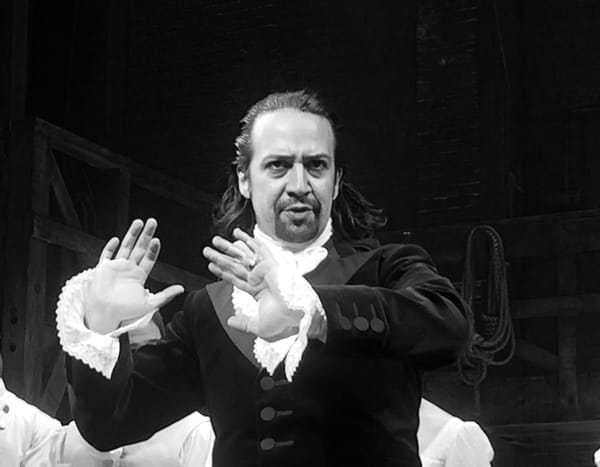How did Alexander Hamilton—champion of capital, skeptic of democracy—come to be seen as a hero by progressive America? This past spring, journalist Matthew Zeitlin suggested on X (the app formerly known as Twitter) that the musical Hamilton had sketched “an alternate historiography for the contemporary Democratic Party.” According to Zeitlin’s theory, the musical had excised “the Jefferson-Jackson strain” in favor of “New England Federalism.” Instead of celebrating Thomas Jefferson, Andrew Jackson, FDR, and LBJ, the party had been reoriented around Hamilton, Lincoln, and Obama. As Zeitlin went on to suggest, the message of Hamilton the man and, by extension, Hamilton the play, is less democratic—less celebratory of the demos, of the power of ordinary people—than it might seem.
I recalled Zeitlin’s tweet this past month while watching Hillary Clinton’s odd, Soviet-realism-style appearance at the 2024 Tony Awards. Hillary—ostensibly in her role as co-producer of Suffs, a musical about the suffragettes—came out, received a standing ovation, and basked in the applause, which seemed to say, This is our elite. This is the Hamiltonian meritocratic royal we all deserved, but didn’t get. Hillary, producer of a progressive play, is a Hamilton figure: an immeasurably powerful and influential insider who nonetheless stands for civilizational progress and is permitted to speak for nameless, forgotten activists.
